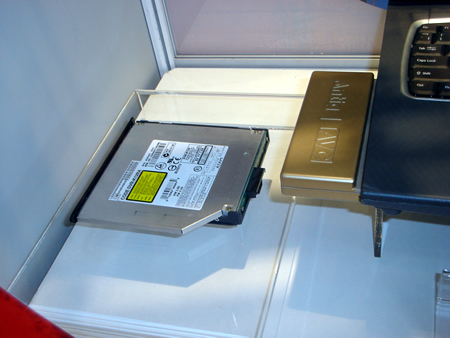Antig confident of fuel cell success

Taiwanese manufacturer Antig has claimed that its fuel cell product will be commercially deployed in notebook PCs in 2007.
Speaking at the CeBIT trade show in Hanover last week, Antig said that it was already in negotiations with several laptop makers who were interested in deploying its fuel cell technology. The company is confident that these talks will result in its laptop-powering methanol fuel cell being available to consumers, perhaps as early as the start of 2007.
"The industry is getting our fuel cell module now," said Linnet Tsai, deputy marketing manager at Antig. "Consumers will be next, once the manufacturers have validated our product."
Fuel cells have been "close to commercial deployment", at least according to the companies pushing them, for a decade or more. But there are signs that the technology may finally be ready for market. Last week, a US start-up called UltraCell said it was bringing a prototype fuel cell to market that can power a laptop for 14 hours.
One factor behind the industry's recent optimism is that restrictions preventing fuel cells from being carried on aeroplanes have recently been lifted by the International Civil Aviation Organisation.
Antig's product doesn't offer the promise of such high performance. Its product is a hybrid fuel cell, which means that the laptop uses a standard Lithium-ion battery as well as the fuel cell. The fuel cell fits into the media bay of the laptop, replacing a CD or DVD drive.
Tsai siad that Antig's fuel cell can't be used as the exclusive power source because it only delivers a power output of 12W.
"When you turn on your PC, you need 60W... to boot it up. Once you're running normally, you'll use around 12W so you'd just use the fuel cell then, and when the PC is in standby mode you can charge the laptop battery from the fuel cell," Tsai explained.
Tsai also said that Antig's current fuel cell module would increase laptop battery life to eight hours, compared to up to four hours today for a typical laptop. This is roughly equivalent to carrying a second laptop battery. Tsai claimed that future models would offer better performance.
Antig won't reveal which companies it is in talks with. Tsai would only say that they were "major Taiwanese OEMs [original equipment manufacturers]".

Antig's fuel cell module fits into the media slot of a laptop, and can boost battery life by four hours. Future models may manage more.